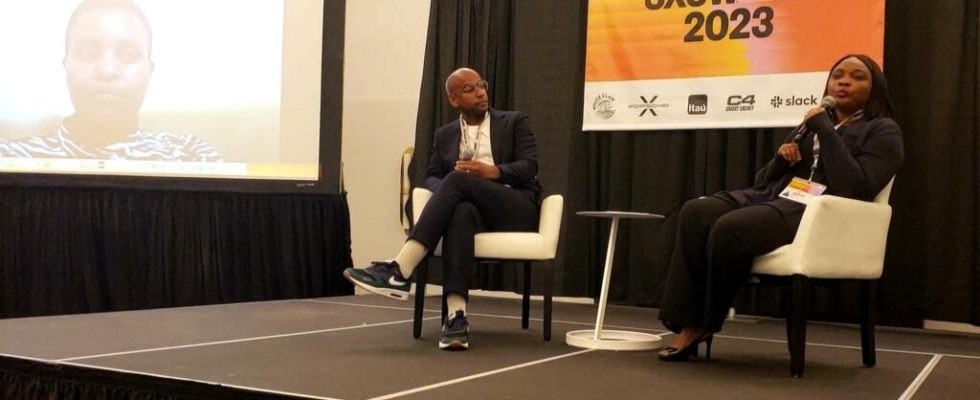In Africa, new local technologies are enabling the development of the agricultural sector on the continent. Applications of African agrotech were showcased at South By Southwest, the innovation festival in Austin, Texas, March 10-19.
From our special correspondent in Austin,
In Africa, only 2% of loans go to agriculture. For the banks, this sector is too risky and investors are reluctant to finance anything. But with a young continental population, the use of new tools makes it possible to bypass traditional financing.
New technologies make it possible to increase performance and obtain advice from scientists rather than learning by trial and error. For example, there is DigiCow. This app allows smallholder African dairy farmers to record milk production data of their cows (feeding schedules, milking data, sales data, breeding data, cow health information, etc.) cattle…).
A feature also helps farmers improve breeding by automatically tracking gestation dates and provides access to licensed veterinarians or artificial insemination providers in the country. Finally, DigiCow provides cattle management advice, free of charge, to producers, information on market trends and news from the dairy industry.
This application, created in Kenya in 2018, is now used by 60 000 farms. And no need to have a smartphone, because the application is now developed to send data and advice in local languages by SMS. DigiCow is one of the winners of the “Ayute Africa” prize for young innovators in agriculture, awarded since 2021 by the NGO Heifer International. With the $1.5 million prize pool shared with the other two winners, DigiCow hopes to reach 500,000 dairy farmers this year.
► To read also: How to enrich the agricultural sector in Africa
Lack of material
Agrotech at South By Southwest was also the Hello Tractor app. Its founder, Jehiel Olivier, started from the observation that 70% of food is produced by small family farms. But in Africa, many lose money because they do not have access to the equipment to make their crops profitable. What if it was possible to rent this equipment to several people? This is what the Hello Tractor application offers. It connects small farmers who need a tractor with farm equipment owners, who are willing to rent their equipment 50 or 100 km away for several weeks or months.
The interface is managed by “community agents”, selected and trained to organize a tractor reservation calendar with slots for each farmer in their community. This agent receives a commission on each task that he created in the application and which was the subject of the use of the tractor. Farmers, on the other hand, only pay when the service is finished. Hello Tractor is present in 16 countries, with offices in Nigeria and Kenya and agents present among others in Senegal, Ivory Coast and Ghana.
From start to finish of the production chain
To find out what land is fertile and when it is, farmers across the continent can turn to ThriveAgric. With 500,000 users in Nigeria, the app hopes to have 10 million by 2027. The app’s Farm Operating System (AOS) contains data on farmers and potential customers who sell their produce . A total of 2,000 company agents roam the field with the Thrive AOS mobile app and map and record precise data about farmers’ land (such as soil composition and proximity to water). They then identify use and seeding needs, monitor crop performance, track harvests and assist with post-harvest processing.
The company has also developed an agricultural market platform called Tradr. Some 12,000 customers, 30% of them women, use Tradr to buy seedlings, sell their crops, rent agricultural equipment and track market prices of different commodities.
Because one of the problems encountered by agricultural professionals is that once harvested, you have to sell your products. This is where ColdHubs comes in, a small cold room app for African markets. With heat and without a cold chain, most products last a day at most before spoiling and rotting. Thanks to ColdHubs, market gardeners and breeders can rent cold rooms by the day or week and thus supply their stand as they go.
For the moment, about fifty compact cold rooms, powered by solar energy and managed by a telephone application, exist in the markets of central Nigeria. By 2026, ColdHubs hopes to have 5,000 cold rooms in place in West Africa.
And for pricing, there’s mAgri, developed by Brastorne in Botswana. This application allows farmers to access agricultural information, markets and finance through SMS and interactive voice technology. Brastorne’s Mpotsa (‘Ask Me’) mobile service provides rural users without internet with sought-after information. Applications that cover the entire agricultural production chain.
► To read also: Agriculture in Africa: “We need more investment in the agri-food system”
